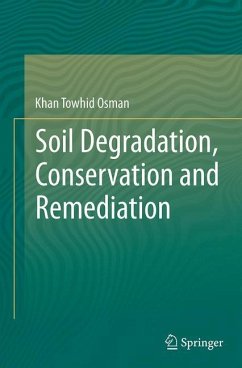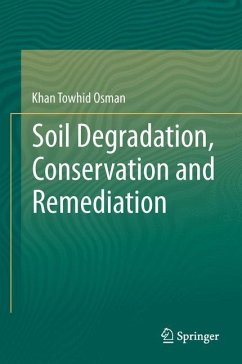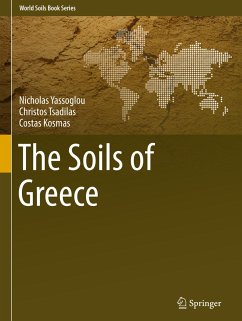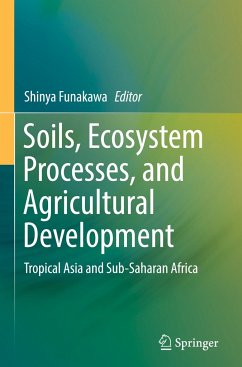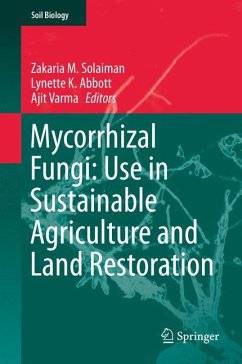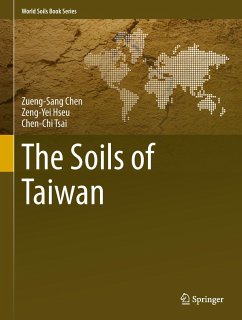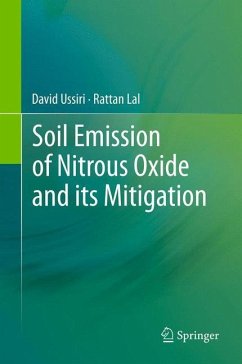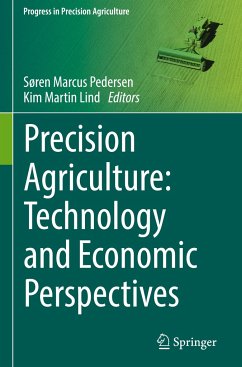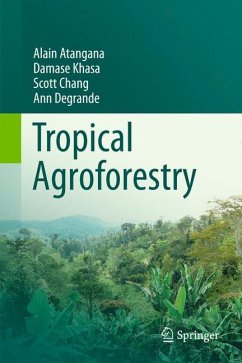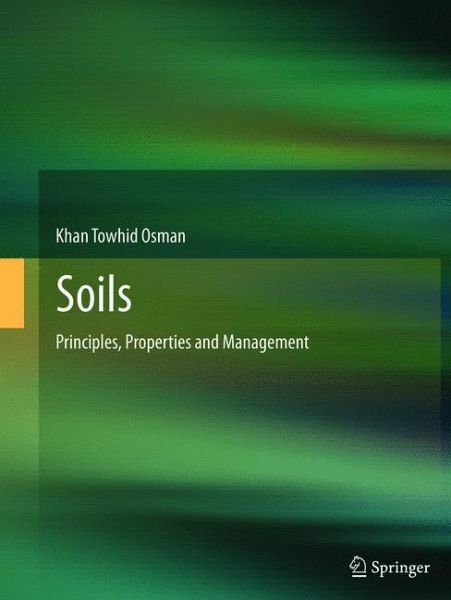
Soils
Principles, Properties and Management
Versandkostenfrei!
Versandfertig in 6-10 Tagen
76,99 €
inkl. MwSt.
Weitere Ausgaben:

PAYBACK Punkte
38 °P sammeln!
Aimed at taking the mystery out of soil science, Soils: Principles, Properties and Management is a text for undergraduate/graduate students who study soil as a natural resource. Written in a reader-friendly style, with a host of examples, figures and tables, the book leads the reader from the basics of soil science through to complex situations, covering such topics as:the origin, development and classification of soil physical, chemical and biological properties of soil water and nutrient management management of problem soils, wetland soils and forest soils soil degradation Further, the ecol...
Aimed at taking the mystery out of soil science, Soils: Principles, Properties and Management is a text for undergraduate/graduate students who study soil as a natural resource. Written in a reader-friendly style, with a host of examples, figures and tables, the book leads the reader from the basics of soil science through to complex situations, covering such topics as:
the origin, development and classification of soil physical, chemical and biological properties of soil water and nutrient management management of problem soils, wetland soils and forest soils soil degradation
Further, the ecological and agrological functions of soil are emphasized in the context of food security, biodiversity and climate change. The interactions between the environment and soil management are highlighted. Soil is viewed as an ecosystem itself and as a part of larger terrestrial ecosystems.
the origin, development and classification of soil physical, chemical and biological properties of soil water and nutrient management management of problem soils, wetland soils and forest soils soil degradation
Further, the ecological and agrological functions of soil are emphasized in the context of food security, biodiversity and climate change. The interactions between the environment and soil management are highlighted. Soil is viewed as an ecosystem itself and as a part of larger terrestrial ecosystems.




